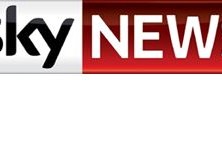The Slovak Syndicate of Journalists recently passed an updated ethics code. (Credit: "Slovakia Cultural Profile")
A Slovakian journalists group approved a new code of ethics for the country’s journalists and a new chairman, the Slovak Spectator reported. The code is put forth by the Slovak Syndicate of Journalists (SSN).
The updates to the ethics code highlight the following media ethics issues: conflict of interest, censorship, and invasion of privacy.
The code will become official in January and was “passed” by the journalist group Nov. 5, the Spectator reported. “Most media organisations in Slovakia, even though who aren’t members of the SSN, are expected to observe it.”
Although the SSN approved the code, some members of another journalist group, the Slovakian branch of the International Press Institute, also worked on the code. As a result, IPI vice chairman, Pavol Múdry, is quoted as saying “we accept” the code.
StinkyJournalism has written to the IPI asking if Múdry’s quote means that Slovakian IPI members agree to abide by the code. We will update with any response.
IPI Slovakia is a two-year-old organization that claims to “help strengthen media freedom in Slovakia,” the IPI’s website explains. IPI is “a global network of editors, media executives and leading journalists in over 120 countries.”
The SSN also changed its chairperson, the Spectator noted. The new chairman, Peter Kubínyi, succeeds Zuzana Krútka. According to the Spectator, Kubínyi “is now expected” to modernize the journalists’ group.
The SSN describes itself as “a professional and trade union of journalists” operating independently and across media from “print, radio, television and news agencies”
SSN members are required to abide by the ethics code, according to its site.
Slovakia is ranked by Reporters without Borders on its 2010 press freedom index to be 35 out of 178 countries. (For context, the UK is ranked 19, the US is ranked 20, and Russia is 140).
iMediaEthics has written to the SSN and will update with any response.
iMediaEthics has written about the efforts of the European Journalism Centre as it works to create a code of ethics for all European journalists. The code most recently was updated to include bloggers and more European countries.
UPDATE: 11/29/2010 10:28 AM EST: Peter Kubinyi of the SSJ responded to iMediaEthics’ e-mail inquiry. He explained that the original code was adopted in October 1990, and this is the first time the code has been updated. The code isn’t enforceable. “But we think that ethics is a quite important part of the professional work, so if journalists agree voluntary to keep the Code, it is better,” Kubinyi wrote.
He explained that any professional journalist – full-time or freelance- can be a member of the SSN. Members can be penalized for “duty infringement” or “in case of abuse.”
We asked what influenced the updates and what media ethics issues are emphasized. Kubinyi explained:
“We felt that the times changed and so it was necessary to change the Code. Beside the issues you have already mentioned we included the protection of children as sources of information and the possibility to join the Code for journalists who are not members of our organization as well as for other media and journalists (editors, publishers) organizations. The actual Code is more detailed, too.”





